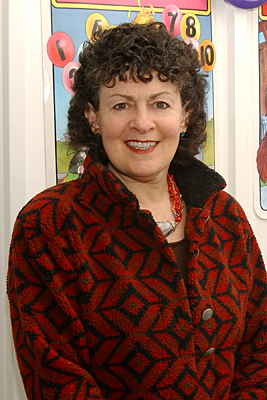


Play on words
Creating playful interventions to help build children's vocabulary
3:25 p.m., May 20, 2011--For Roberta Golinkoff, play has always been a necessary ingredient for language learning. But with meaningful vocabulary building activities absent from many preschools across the country, Golinkoff, H. Rodney Sharp Professor in the School of Education, says something needs to change.
"Since No Child Left Behind was enacted, we have been concerned with closing the achievement gap," said Golinkoff. "But, the "drill and kill" vocabulary approach that goes on in preschool to second grade is not getting us anywhere because we're seeing little progress in children's reading scores."
Research Stories
Chronic wounds
Prof. Heck's legacy
Research is showing that preschoolers, especially those who come from disadvantaged homes, aren't acquiring the vocabulary necessary for reading comprehension when they advance to elementary school. "Learning to read turns into reading to learn around third grade," said Golinkoff. "Disadvantaged children have difficulty making that transition, partly for lack of vocabulary."
Golinkoff and her colleagues, David Dickinson from Vanderbilt University and Kathy Hirsh-Pasek from Temple University, are proposing a different approach to providing young disadvantaged children with vital language support. These interventions combine group readings and guided playful activities to help foster vocabulary growth.
"Our society cannot afford to have children who cannot comprehend the texts they are reading," said Golinkoff. "What we're doing is creating an instructional intervention that will facilitate children's vocabulary learning. We will also develop professional development modules to coach teachers in early childhood classrooms to acquire the tools they need to encourage vocabulary learning."
With a $1.7 million grant from the Institute of Education Sciences, Golinkoff and her colleagues will conduct a three-year research project to evaluate and refine their vocabulary-building approach.
In one example of an intervention activity, students read stories with a teacher and the words within the story are explicitly defined. Then, students work with a language specialist to help them construct a narrative around props related to the story.
"This grant is based on findings from developmental science," said Golinkoff. "When children are active and engaged in meaningful activities they learn best – and the learning 'sticks.'"
Research will be carried out at Vanderbilt University and around the Lehigh Valley in Pennsylvania. The project is set to begin June 1.
Article by Cassandra Kramer









